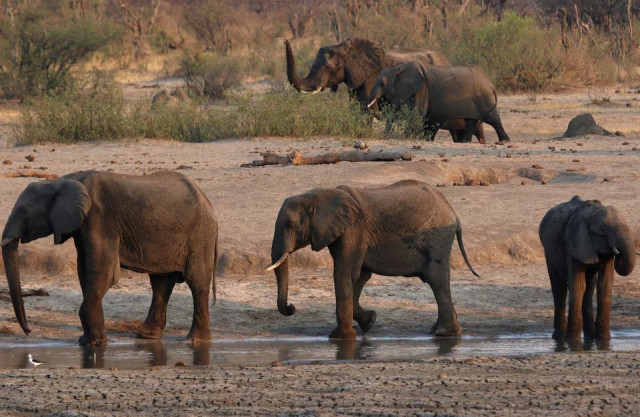Zimbabwe plans elephant cull as drought drives millions into hunger
200 elephants to be culled in a bid to supply meat to struggling communities and manage overcrowded parks

Zimbabwe plans to cull 200 elephants in response to severe hunger affecting communities due to the worst drought in 40 years, wildlife authorities announced on Tuesday. The drought, caused by El Nino, has devastated crops across southern Africa, leaving 68 million people facing food shortages.
Tinashe Farawo, spokesperson for Zimbabwe Parks and Wildlife Authority (Zimparks), confirmed that the cull is intended to provide elephant meat to communities impacted by the drought. He added that the details of the operation are still being finalised.
This will be Zimbabwe's first elephant cull since 1988 and will occur in the Hwange, Mbire, Tsholotsho, and Chiredzi districts. The decision follows Namibia’s recent cull of 83 elephants to feed those affected by the drought.
An estimated 200,000 elephants live in a conservation area spanning five southern African nations – Zimbabwe, Zambia, Botswana, Angola, and Namibia – making it one of the largest elephant populations globally. Zimbabwe itself hosts over 84,000 elephants, while its parks are only able to support 55,000.
Farawo noted that the cull also aims to reduce the overcrowding of elephants in the country’s parks, although 200 elephants are a small fraction of the total population. He emphasised that with such extreme drought, conflicts between humans and wildlife tend to increase, as resources become scarcer. In the previous year, 50 people were killed by elephants in Zimbabwe.
Despite its strong conservation record and increasing elephant population, Zimbabwe has been advocating for the UN’s Convention on International Trade in Endangered Species (CITES) to lift the ban on trading ivory and live elephants. Zimbabwe is currently unable to sell its ivory stockpiles, valued at approximately $600 million.



















COMMENTS
Comments are moderated and generally will be posted if they are on-topic and not abusive.
For more information, please see our Comments FAQ